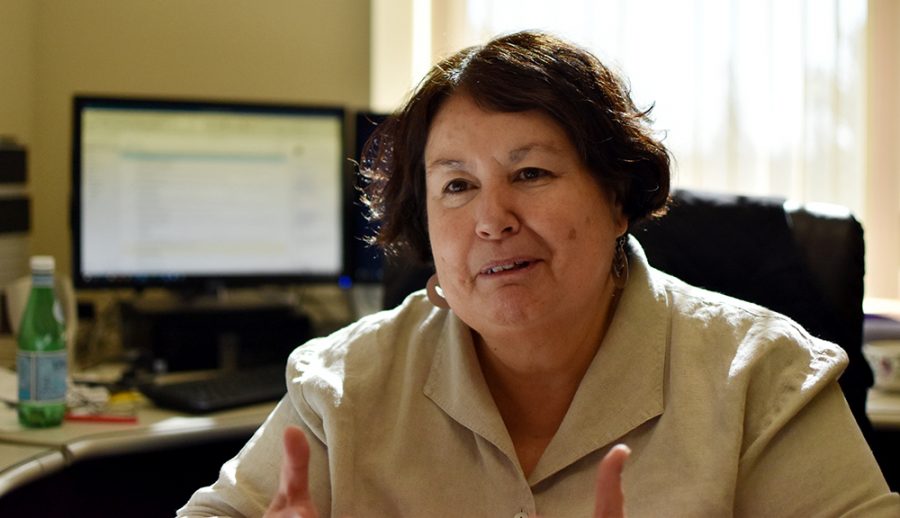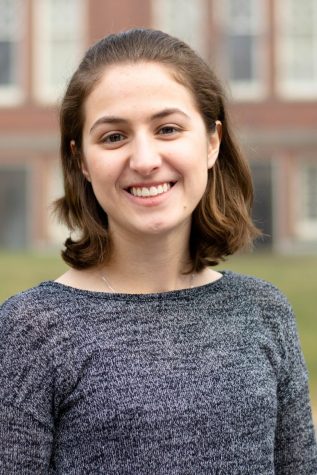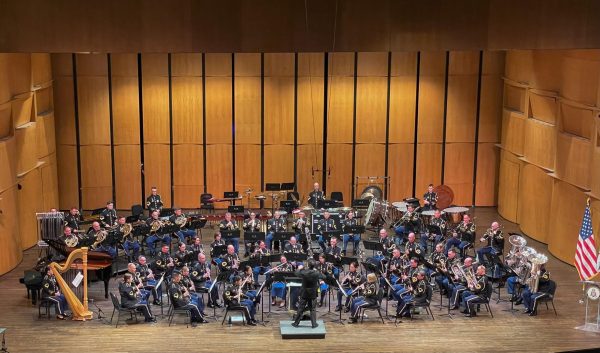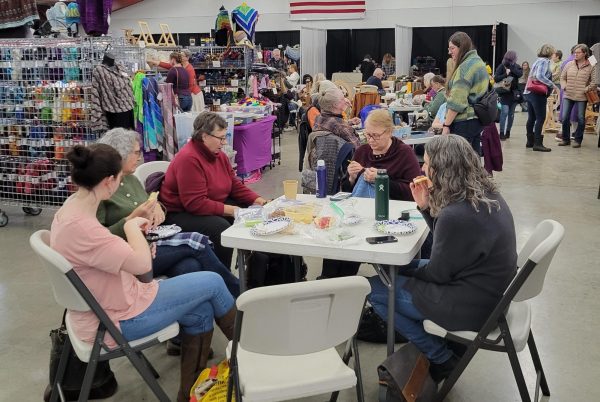Professor’s experience in Chile inspires research
Vilma Navarro-Daniels was recently promoted; teaches students through film and literature discussions
EMMA LEDBETTER | THE DAILY EVERGREEN
Professor Vilma Navarro-Daniels talks about Spanish literature and film Friday at noon in her office in Thompson Hall. Navarro-Daniels says she enjoys getting to discuss films with students, especially when they are willing to read subtitles to understand.
February 25, 2020
Professor Vilma Navarro-Daniels is not sure how she got to where she is today — that is, to teaching as an associate professor and recently receiving a promotion to full professor in the School of Languages, Cultures, and Race.
“Little ants … they take piece by piece their food and suddenly they have a hill, a mountain,” Navarro-Daniels said. “When I look back, I see the same. I don’t know how I got here; it was day-by-day, probably.”
Navarro-Daniels is very intellectually curious, said Ana Maria Rodriguez-Vivaldi, associate professor and associate dean of student affairs and global education.
“She has evolved in her scholarship to broaden it to explore certain topics in depth,” Rodriguez-Vivaldi said. “She doesn’t stand still.”
Navarro-Daniels has spent most of her professional career until recently researching and teaching about Spanish film and literature, specifically looking at female influence in the genre.
Women writers have historically gone unrecognized, she said.
“Literature and film made by women … it’s a battle that we need to fight,” Navarro-Daniels said. “The canon is so male orientated, even in the 21st century it’s very important that we recognize that, in history, we have always had women writers.”
Navarro-Daniels loves film and getting to discuss it with students. She said being a teacher is very exciting, especially when students are willing to read subtitles to understand films in a language that may be foreign to them.
“I really enjoy teaching … grading is not the best part,” she said. “I always think, why don’t we meet at a cafe and talk about the movie we have this week as a group of friends, with no evaluation?”
Now a native of Chile, Navarro-Daniels is just beginning to explore research of literature and film in her home country.
Navarro-Daniels lived in the country for the entire duration of Augusto Pinochet’s 17-year-long dictatorship. She said it took her a long time to be able to shift her research focus to her home country.
“It’s a sort of reconciliation with my own national identity and the traumatic past of the dictatorship,” she said.
Unlike other countries that were under the rule of a military dictatorship, like in the Dominican Republic, Navarro-Daniels said there is no shared national memory of Pinochet. Though many, including herself, opposed Pinochet, about 40 percent of the population voted to keep him in office the year his dictatorship ended.
“That was the first time that I voted,” Navarro-Daniels said. “I cried when I wrote my ballot, it was touching to me.”
Rodriguez-Vivaldi said Navarro-Daniels has deep values, especially when it comes to social justice and supporting the downtrodden as she did in Chile.
Professors often struggle to separate their backgrounds and experiences from their research and teaching, Navarro-Daniels said.
“It’s like you have a commitment to something that is beyond academia; beyond these walls is the world,” Navarro-Daniels said. “Neutrality doesn’t exist, in my opinion. You always have a position.”























